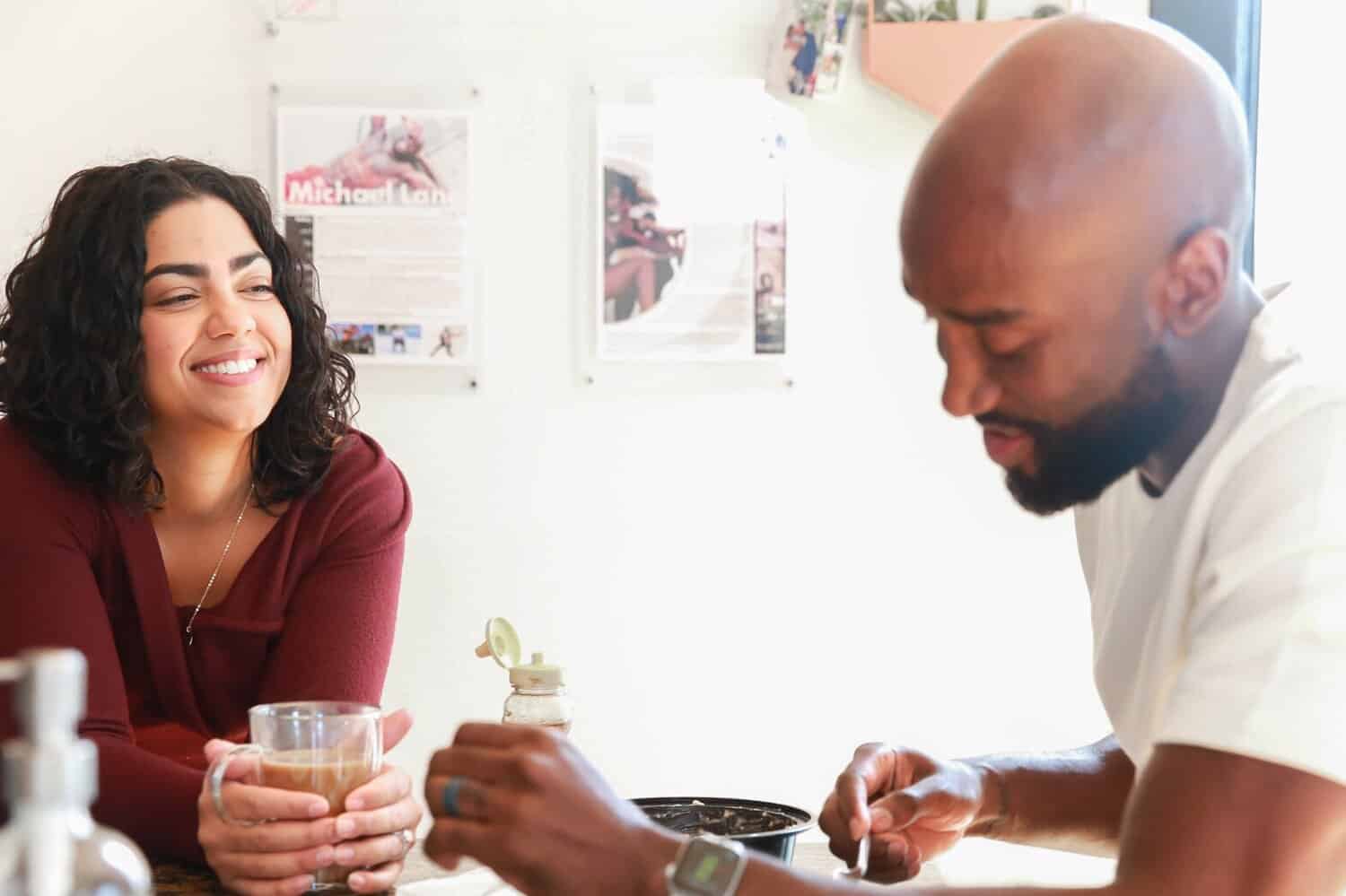When we fear something and try to control it as a result, we might think we are managing the situation. But what actually happens is that our fear ends up controlling us. It becomes a cycle that can be damaging, block your success, and lessen your likelihood of achieving your desired outcome. Releasing control can help you overcome your fears – whatever they are.

Many of us, more than are willing to admit, hold onto control of situations for dear life. As a result, we connect ourselves and our value to outcomes, push for things to happen the way we want them to go, and try to run the show.
Our culture places a great deal of significance on staying in control and designing an always organized, structured, and planned life with purpose.
But it’s a practice that can leave you stressed and depressed.
The reality is that things go much more smoothly when we allow them to happen instead of always pushing and working to make them happen.
Is your controlling behavior sabotaging your relationships?
Maybe people close to you tell you that they need more space or want to do things their way, for instance.
Or maybe you recognize your tendencies and feel guilty about snooping through your loved ones’ belongings, online accounts, and overall personal space.
In extreme cases, controlling relationships can lead to domestic violence. But even in the less severe cases, you may still be reinforcing your insecurities and losing opportunities for friendship, love, and overall connection.
If you’re willing to change, you can develop healthier ways to interact, and learn how to become more supportive and less controlling.
I am a firm believer that change always starts within us. The only thing that we truly have control over is ourselves. Our actions and responses can influence the outcomes that we get in return. And that can be good, or bad.
I want to start out with some steps to take within yourself to release controlling behavior.
Things To Work On Within Yourself to Let Go Of Controlling Behavior

Consider therapy
While sometimes dismissed as being for crazy people, those that have “real problems”, or other things that we tell ourselves, the reality is we can all benefit from having an unbiased party to help navigate the tumultuous waters that are also known as our thoughts and struggles.
The need to control your environment could have begun in childhood with parents who may have been demanding or unreliable, or maybe even being bullied at school. There are so many avenues that can lead you to the place of feeling like you need control.
Counseling can provide the help you need to change such long-standing habits.
Manage anxiety
There are several ways to cope with anxiety. Some people need medication to effectively manage it, but there are also non-medicated ways to manage your anxiety. Discussing that with your doctor or therapist, can help you determine the best way for you.
Trying to dominate others is usually a sign of insecurity. Learning to recognize and soothe your own anxieties will make it easier to be vulnerable and treat others as equals.
Build your confidence
Sometimes when we suffer from a lack of self-confidence we then project that onto other people in different ways.
Work on developing a more solid sense of self-esteem and confidence. Remember your strengths and achievements. Practice asserting yourself without putting others down.
Widen your circle
In relationships, whether they be your parental relationships, romantic relationships, or even friendships, you may find yourself wanting your people to spend all their time with you.
Do you:
- want your partner to spend time with you instead of their family and friends?
- not like your kids going to hang with friends because then you will be alone?
- not like the friends that you do have to interact with other friends?
You’ll be happier if you maintain connections outside of the regular ones. Different relationships help meet different needs.
Spend time alone
There are several benefits to spending time alone.
Having the opportunity to assess your own thoughts, preferences, and feelings helps you more fully show up in the world.
Becoming comfortable with solitude can also help you to feel less dependent on others. Plan activities you can enjoy solo such as meditation or visiting an art museum.
Assess your career
Sometimes we can feel inferior, or like we do not belong in certain circles, because of our thoughts and insecurities about our work.
Are you working a job that you want to be in? Or are you working the job you could get?
If the latter is true, it is important to set goals for yourself around your career so that you can be happier and more fulfilled, which allows you to not project your insecurities into other areas of your life and onto others.
Steps to Take In Relationships With Others to Release Control

Your interactions with others are impacted by your actions, words, and boundaries, or lack thereof.
These are some steps you can take in your relationships with relatives, friends, co-workers, and even in romantic relationships to release control.
Learn how to accommodate others
Do you tend to think it is your way or the highway? Are you closed to the thoughts and perspectives of others, or easily dismiss them.
Relationships become strained if you’re used to giving orders and arguing until the other party gives in. Experiment with a more collaborative approach.
Take turns making decisions.
Search for compromises that will satisfy all parties involved.
Recognize manipulation
Manipulation in relationships can lead to trauma. Some examples of manipulation include, but are not limited to:
- Being passive-aggressive
- Dishonesty
- Withholding of information
- Isolating a person from friends and loved ones
- Using sex to get what you want
Making others feel guilty for disagreeing with you, withholding information, or doing other manipulative things is also likely to drive them away.
Be honest with yourself about your intentions and ask for what you need directly.
Stop keeping score
Can you do a favor for someone without first tallying up what they’ve done for you lately?
You’ll find that giving is more rewarding if you forget about the balance sheet.
Respect privacy
It may be tempting to go through your loved ones’ things if you find it difficult to trust others. However, they deserve their privacy, and exercising restraint may help you to relax too.
Think positive
Criticizing others can be a way to feel superior. Before you say something harsh to others, ask yourself if it’s truthful and constructive. Think about what the intended outcome is with your words.
Is it to get a response? To encourage? What is the intended purpose?
Also, be sure to tell them what you like about them too.
Keep an open mind
Close connections depend on being able to listen to each other and respect different points of view. As a result, you’ll be less likely to belittle others for their beliefs if you feel secure about yourself.
Love unconditionally
No matter what your childhood was like, you can decide to do things differently now.
Value others for who they are instead of what they can do for you.
Accept them as individuals rather than requiring them to live up to your expectations.
You can turn your life around by finding the support you need to give up your controlling behavior and form connections based on trust and respect. As a result, you’ll enjoy greater peace of mind, and your relationships will be more stable and fulfilling.
Ready to start unpacking your fears or controlling behavior?
Ready for the Next Chapter In Your Growth Journey?
If you are interested in working through your personal and professional goals by starting on the self-awareness chapter of your growth journey, grab a copy of the Who Are You workbook.
Need someone to help you set your goals, talk through your thoughts and reflections, all while offering accountability? Book a discovery call today to see if we would be a good fit to work together.




One Comment